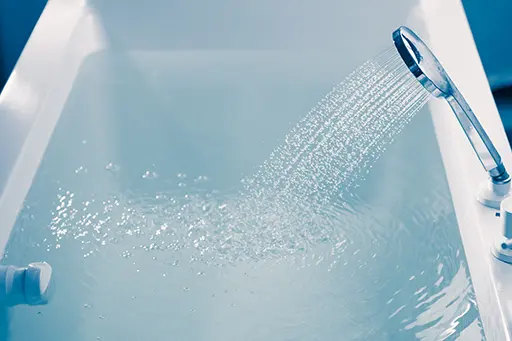State Water Heaters

What’s so special about State Water Heaters?
State water heaters are high-quality water heating systems manufactured by State Industries, a leading brand in the industry. These water heaters are known for their durability, energy efficiency, and innovative features. They come in various sizes and types to suit most household needs, including tankless, electric, and gas-powered models.
How State Water Heaters Work
State water heaters utilize advanced technology to provide a continuous hot water supply. In a traditional tank-style water heater, cold water enters the tank through a dip tube, where a gas burner or electric heating element heats it. The heated water rises to the top of the tank and is delivered to the faucets when needed. State water heaters are designed to minimize heat loss and maximize energy efficiency, ensuring hot water is readily available whenever required.
Average Cost to Install and Run State Water Heaters
The cost of installing a state water heater depends on various factors, such as the installation’s unit type, size, and complexity. While tankless models may have a higher upfront cost, they offer long-term savings due to their energy efficiency and on-demand hot water supply. On the other hand, traditional tank-style water heaters are generally more affordable to install. Still, they may have higher operating costs over time. Considering the initial investment and long-term energy savings is essential when choosing a state water heater.
Signs of Trouble with Existing Water Heaters
Over time, water heaters may develop issues affecting their performance and efficiency. Some common signs of trouble include:
- A malfunctioning heating element or sediment buildup in the tank can cause an inadequate hot water supply.
- Strange noises from the water heater may indicate a problem with the heating element or sediment buildup.
- Water leaks can be caused by a faulty valve or a crack in the tank.
- A significant increase in energy bills may be due to an inefficient water heater or a leak in the system.
If you notice any of these signs, a professional technician should inspect your State Water Heater to diagnose and resolve the problem promptly. Contact Hoffman & Kelley with any questions or issues about your State water heater.
State Water Heater Maintenance Tips and Schedule
Regular maintenance ensures your state water heater’s longevity and optimal performance. Here are some maintenance tips to keep in mind:
- Flush the tank annually to remove sediment buildup.
- Inspect the pressure relief valve for proper functioning.
- Check for any leaks or signs of corrosion.
- Insulate the hot water pipes to minimize heat loss.
State water heaters are a reliable and efficient choice for homeowners seeking a consistent hot water supply. Understanding how they work, the cost to install and run them, signs of trouble, and proper maintenance can help you make informed decisions and ensure your State water heater operates at its best for years. Give Hoffman & Kelley a call today at 978-475-3424 about a maintenance schedule for your mini split system so you don’t have to worry about it.

